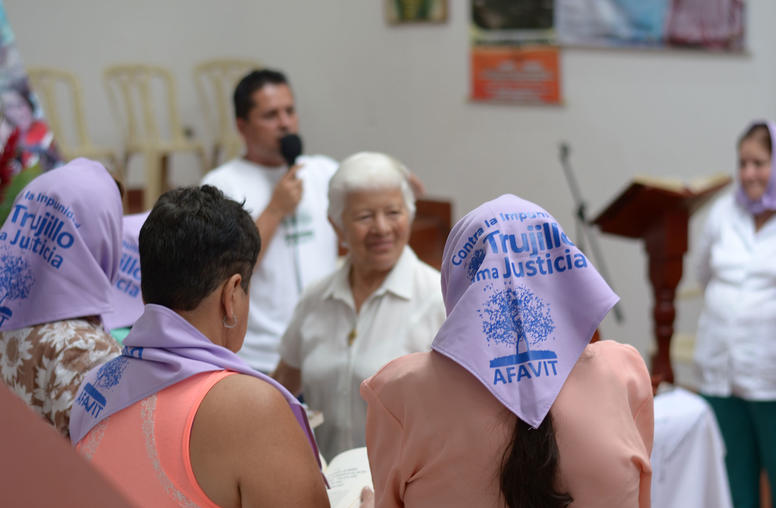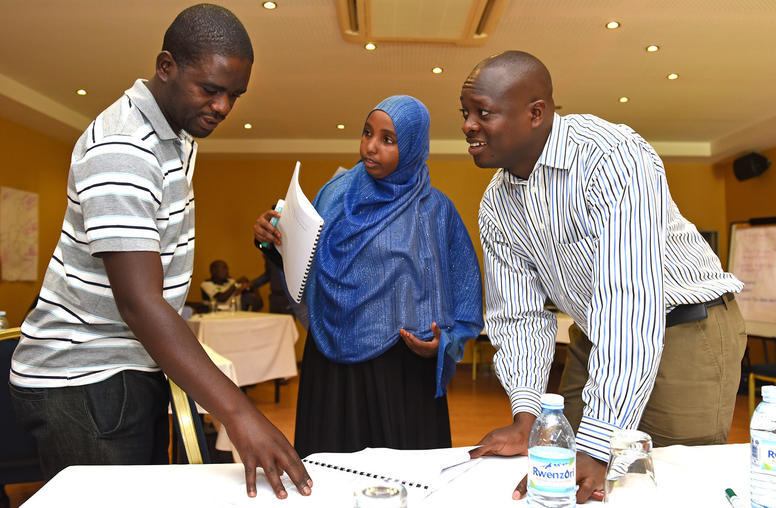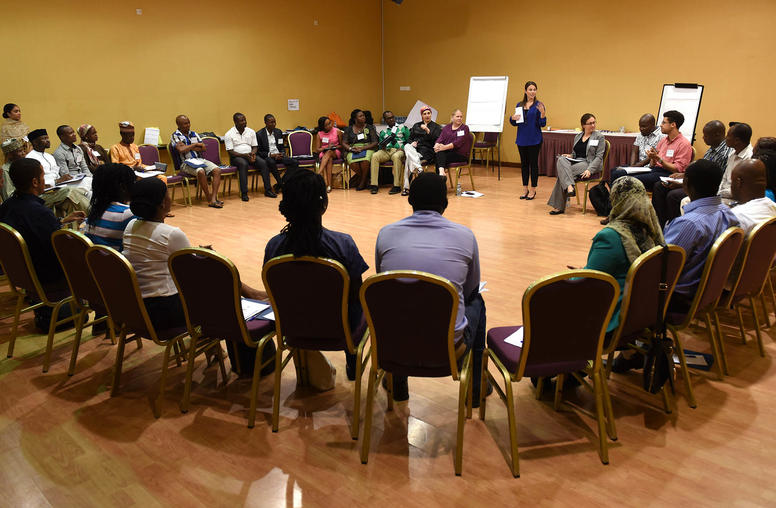 Nigeria
Nigeria
Nigeria’s security challenges have metastasized over the past decade, constraining governance capacity and deepening public distrust in its institutions. As Africa’s most populous democracy and largest economy, Nigeria’s stability has significant implications for the region, as well as for U.S. efforts to promote effective democracy in Africa. Since 2015, USIP has worked to strengthen relationships between communities and the security sector, as well as mitigate intercommunal, pastoralist-farmer and election-related violence through trainings, dialogue and mediation. USIP also conducts research and convenes state-level elected officials, national policymakers and civic leaders to inform and implement inclusive policies that prevent or reduce violence and strengthen community-oriented security.
Learn more in USIP’s fact sheet on The Current Situation in Nigeria.
Featured Publications

The Current Situation in Nigeria
In 2023, the Network of Nigerian Facilitators (NNF) helped the Kaduna State peacebuilding institutions negotiate, draft and implement a peace agreement between local groups to resolve a long-standing and violent communal conflict. The agreement built on a 2019 peace agreement also supported by the NNF to resolve a cross-border conflict involving many of the same groups in neighboring Plateau State.

For Peace in Africa, Boost Regional Blocs — Like West Africa’s ECOWAS
As the United States and international partners work to stabilize Africa’s Sahel region — and to prevent its warfare, violent extremism and armed coups from metastasizing into Africa’s densely populous and strategic Atlantic coast — the West African multinational bloc, ECOWAS, has proven its value in resolving crises and promoting stability. Yet, as global security threats have evolved, ECOWAS, like other multinational bodies, needs updated capacities to meet new challenges. International democracies’ most effective initiative to support West Africa’s stability would be to partner with West Africans to strengthen their vital regional community. A similar strategy is valid across Africa.

To Help Stabilize West Africa, Bolster a Key Partner: Nigeria
Continued violence in West Africa is sharpening America’s critical challenge to reduce extremism and violence, particularly in the Sahel. Violent deaths in three western Sahel nations surged by 38% last year and Niger’s coup has complicated the U.S. military role in the region. The violence is likely to spread further this year into coastal West Africa, a region five times more populous, with commensurately greater security implications for Africa, the United States and the world. A vital partner in stabilizing both regions is Nigeria, and U.S. institutions should consider several priorities for helping it do so.
Current Projects

Religious Women Negotiating on the Frontlines
In recent years, peace processes — such as the track 2 intra-Afghan negotiations — have shown that on both a moral and practical level, women’s inclusion is essential. Women’s involvement in peace processes increases their likelihood of success and longevity and can increase legitimacy. While more literature on women contributing to mediation and negotiation efforts is slowly being produced, little attention is currently being paid to the already existing work of women who employ their faith and mobilize religious resources for peacebuilding.

Youth Advisory Council
Built upon the belief that youth bring significant and unique insight to peacebuilding, the U.S. Institute of Peace’s Youth Advisory Council (YAC) provides a mechanism through which USIP experts can benefit from youth perspectives and expertise. The YAC enables USIP staff to engage youth as partners, experts, and practioners while elevating youth voices and experience to the international level. The YAC contributes to USIP’s vision for an inclusive approach to peacebuilding. The Youth Advisory Council meets regularly to bring together youth thought leaders and peacebuilding experts committed to the Institute’s mission and activities.

Generation Change Fellows Program
Generation Change works with young leaders across the globe to foster collaboration, build resilience and strengthen capacity as they transform local communities.